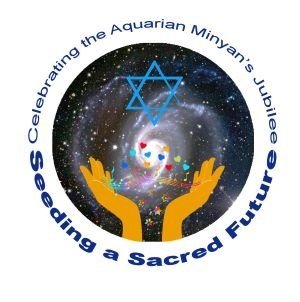Drash on Sh’lach L’cha
By Abigail Grafton
We are at Numbers 14, verses 20-25: which opens with words we know from the Holy Days: selacti kidvarecha: I pardon you as you have asked. The terms of this pardon are that all the adults who have seen signs and wonders will wander until they die and their carcasses drop in the wilderness. That generation will not see the holy land.
That’s a tough pardon. That’s a disaster. Forty years wandering in the wilderness. What happened? What did they do?
What was HaShem so angry about?
HaShem had told them they were going to have the promised land (and please we are not discussing this in terms of modern politics). They may have listened, but they didn’t hear.
The scouts came back from the Promised Land terrified. They saw people 9 feet tall, saying “and we looked like grasshoppers to ourselves, and so we must have looked to them.” Joshua and Caleb saw differently: nothing to fear here: a land of milk and honey, a people whose protection has departed them.
The people heard the frightened scouts. They were panicking: “We’re all going to die! Let’s go back to Egypt!” Except for Joshua and Caleb, they forgot, or lost faith in, HaShem’s promise.
Taking this story out of its antiquated trappings, I read it as an allegory about how we receive and process information.
There are the things we see in our world. The scouts brought back a single bunch of grapes so huge it had to be carried on a plank. That was physical evidence, but the frightened people ignored it. Then, there are our impressions of what we see. The scouts either did or did not see giants who did make them feel very small and scared.
There are the emotions of the people around us: the panicky crowd wanting to go back to Egypt; the calm certainty of Joshua and Caleb. We have a choice of whom to hear.
Then there is HaShem’s voice. The generation that came out of Egypt saw signs and wonders, they heard a voice, and still they forgot when they were frightened. Today, we still have the opportunity to hear and to remember.
We can hear God’s voice in words of wisdom, in beauty around us, and in other people. And we can hear it inside ourselves, in our inner silences and our deepest places.
Like our forefathers and foremothers we have choices. We can hear or not; listen or not; remember or forget; go with the mob or listen to the truth; and we still have the possibility of dying in the wilderness or living in the land of milk and honey. We can choose what to see, hear and remember, inside ourselves and outside, with our hearts and minds, and most of all with our skill of holy discernment.
Please come up to the Torah if you are interested in developing and using the skill of holy discernment.
